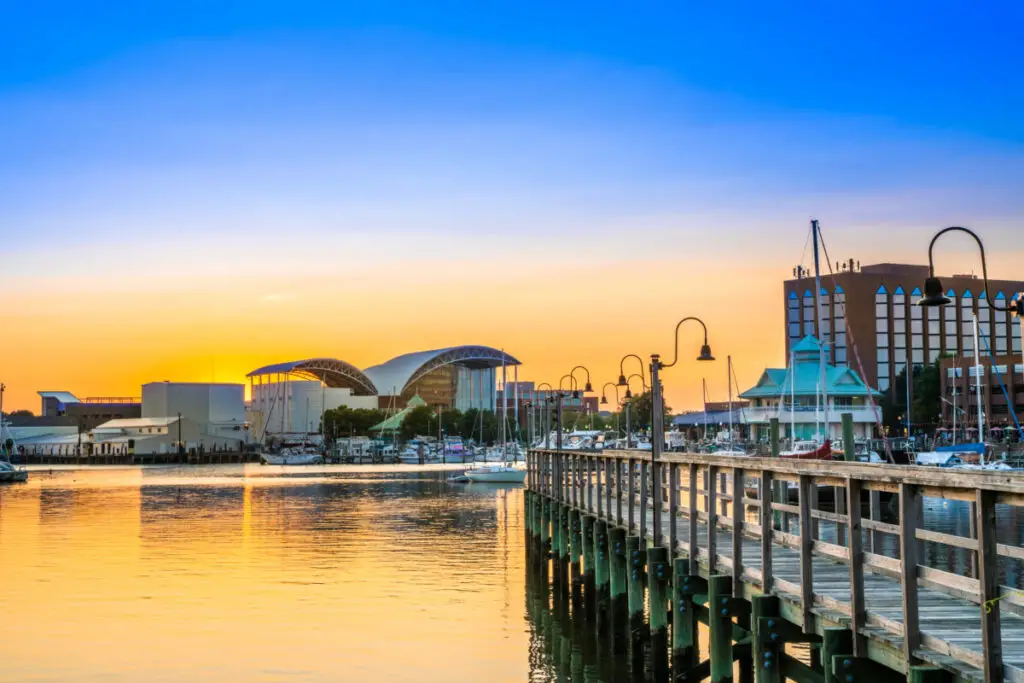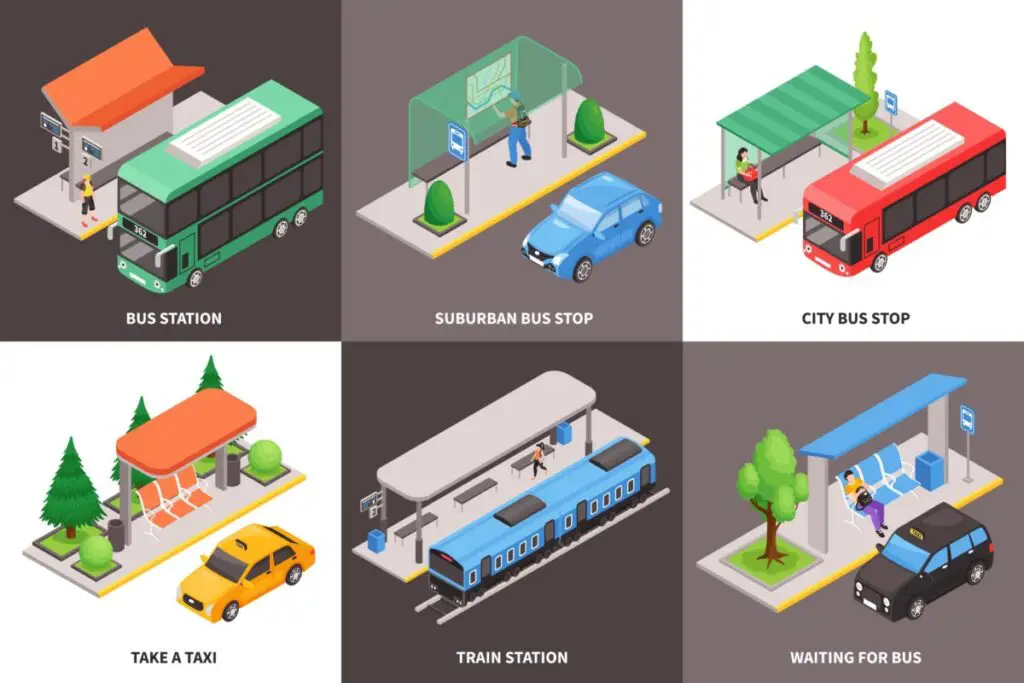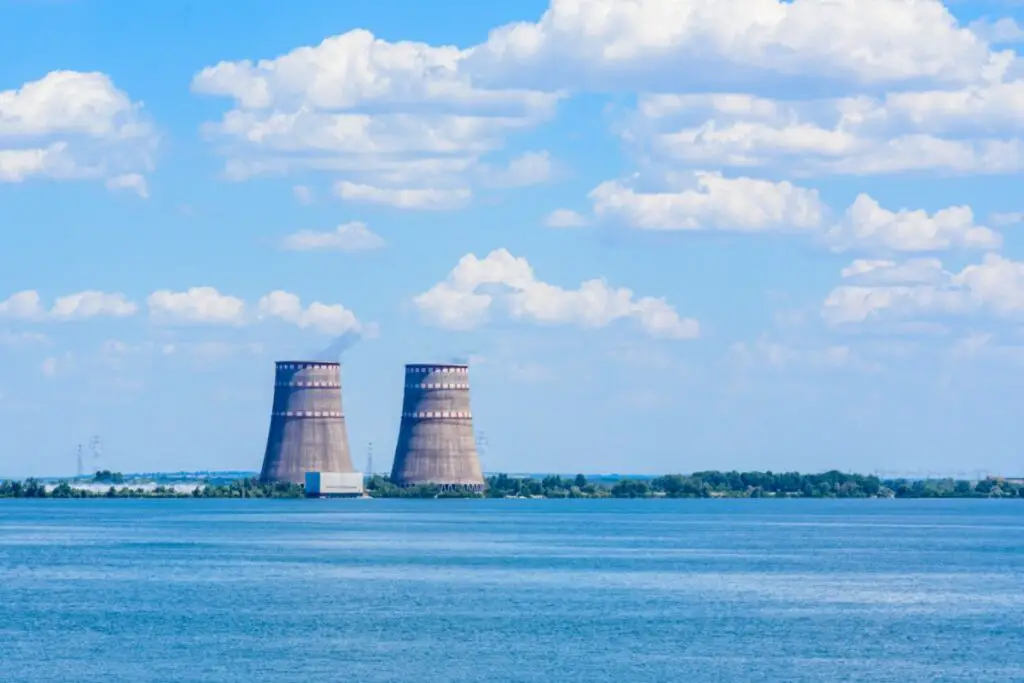
Hampton is one of the Seven Cities, a region of Virginia that sits just at the opening to the Chesapeake Bay. A beautiful city famous for its beaches and for once harboring the pirate Blackbeard, there’s plenty about it that might hurt its appeal as well. To help you determine whether or not you should move to this city in the near future, we have listed 17 reasons why you shouldn’t move there below.
1. Wet Summers
Spring and summer are the wet season in southern Virginia, which means that not only is it hot and humid, but there is also a constant risk of heavy rain. While Virginia’s climate has been described as being in the Goldilocks Zone, anyone who has lived there could tell you that if Virginia is a Goldilocks Zone then Goldilocks must love hot, humid weather.
While summer peaks don’t usually get much worse than 90 degrees Fahrenheit or so , when combined with the high humidity, the heat can certainly be plenty miserable. In fact, the only saving grace for the area is that sometimes, in the heat of the day, it will rain, giving everyone some much-needed moisture.
, when combined with the high humidity, the heat can certainly be plenty miserable. In fact, the only saving grace for the area is that sometimes, in the heat of the day, it will rain, giving everyone some much-needed moisture.
Of course, Virginia isn’t the worst part of the country to live in during the summer, and it is certainly milder than most of the south. That doesn’t make it nice though, and if you plan to move to Hampton, you’ll need to prepare yourself for some miserably hot days.
2. Snow
The snow in Hampton really isn’t that bad. It will usually peak at about 3 inches, which is still low enough that you could walk through it in regular shoes without getting the tops of your feet wet. However, like in many other places that rarely see significant snowfalls, people tend to react to the snow here pretty strongly.
And this isn’t entirely unwarranted. While nights in Hampton often drop below freezing, days tend to hover just above that mark, meaning that the snow will often fall at night, melt during the day, and then freeze again at night, creating hazardous walking and driving conditions.
This happens in places with more snowfall too, but in this part of the country, it can feel especially bad since the snowy season is so short. So, if you move to Hampton, make sure to drive carefully after it snows, even if the road looks clear, and watch your step just in case.
3. Hurricanes
While Hampton is far enough inland thanks to the bay that hurricanes don’t actually hit it very often, when they do, they can cause a ton of damage. The last time the city was hit was a one-two punch from hurricanes Irene and Sandy , which blew through back to back in 2011 and 2012.
, which blew through back to back in 2011 and 2012.
Both hurricanes caused significant flooding to private property, and Irene was even bad enough that the city needed some help getting back on its feet. Like with any city on the lower East Coast, this could happen again any year, so people who move here do so at their own risk.
4. Traffic
Traffic in the Seven Cities is some of the worst in the country , ranking 35th in terms of the increase in travel times between clear and congested conditions. This is likely to have several causes which will be addressed later in this article, but as things currently stand, travel during the morning rush hour takes 18% longer than usual, and travel during the evening rush hour takes a whopping 40% longer than usual.
, ranking 35th in terms of the increase in travel times between clear and congested conditions. This is likely to have several causes which will be addressed later in this article, but as things currently stand, travel during the morning rush hour takes 18% longer than usual, and travel during the evening rush hour takes a whopping 40% longer than usual.
While these certainly aren’t L.A. or New York City numbers, they aren’t small-town America numbers either. Anyone moving to Hampton should be prepared to face some heavy traffic jams or stay at home.
5. Limited Public Transit

For a significant metro area, the Seven Cities (including Hampton) lack an effective public transportation system . Bus stops are far apart, busses tend to run late, and the light rail system is nice but doesn’t have the reach to reliably get people where they need to go. Because of this, most people will need to have a car to get around Hampton and the surrounding cities.
. Bus stops are far apart, busses tend to run late, and the light rail system is nice but doesn’t have the reach to reliably get people where they need to go. Because of this, most people will need to have a car to get around Hampton and the surrounding cities.
This is likely one of the reasons why traffic in the city is as bad as it is. Without viable alternatives to cars, people who need to make their daily commute are forced into cars. The cars all need to use the same roads, which inevitably leads to gridlock. But limited public transportation isn’t the only thing that makes Hampton a city where everyone needs a car.
On the bright side, it seems like people are trying to fix this problem, as extensive additions to the light rail system in the city are on the way. Time will tell if these new services are consistent enough to help with the city’s traffic problems.
6. Low Walk/Bikeability Scores
Low walkability takes into account limited public transit, but alongside bike-ability also measures the presence of pedestrian/biker-friendly infrastructure such as bike lanes, sidewalks, and crosswalks. Hampton’s walkability score is 33, while its bike-ability score is 40. For reference, a good score in either of these fields is 70.
This means that in order to do important tasks such as grocery shopping, running errands, or pretty much anything else, you’ll need a car. With infrastructure funneling people into motor vehicles, it’s actually surprising that traffic isn’t worse!
7. I-64
The final traffic issue for Hampton is the only one that isn’t, on some level, the city’s fault, and that’s I-64. The I-64 highway loops around the Seven Cities for some reason, meaning that getting from one city in the Chesapeake Bay region to another via the highway can get pretty confusing.
With the confusing highway, poor support for walkers and bikers, and very limited public transportation, it seems unlikely that traffic problems in the region will be fixed at any time in the near future. Because of this, if you rely on transportation public or personal to get to and from locations, Hampton might not be the place for you.
8. The Seven Cities
The system of inter-city organizations in Southern Virginia is interesting in that there is none. Instead, each of the cities in the Hampton Roads metro area is its own city, and they all compete with each other over something or other. This comes with advantages and disadvantages.
The cities in Hampton Roads are uniquely spirited in their rivalry with their neighbors. However, it’s also difficult to fund public works projects that will affect all seven cities due to their conflicting interests.
It also makes knowing what city you are in quite difficult at times, although this isn’t so bad in Hampton, as it is cut off from the rest of the cities in the area by the Chesapeake Bay.
It is possible that the Seven Cities would be better off if they had some kind of a county to help organize things.
9. Low-Flying Jets

Hampton is a military town, which is a boon to the local town and brings an influx of new people to the area every year as people transfer in and out. Unfortunately, the base near the city is an Air-Force base, which would be fine except for all the airplanes they need to fly around.
Living in Hampton means getting used to jet noises all the time. Maybe this means building up a higher sound tolerance, or maybe it means buying a bunch of earplugs so you can sleep in on the weekends.
10. Hampton Politics
There are two major things about Hampton politics that might be a turn-off for some people. The first thing is the politics in the city itself, which is decidedly liberal.
Hampton has voted Democrat in every national election for the past 20 years. While there’s certainly nothing wrong with being a liberal city, many people would prefer to live in a town that better reflects their worldview, so if you are extremely conservative in your political views, you may not want to move to Hampton.
in every national election for the past 20 years. While there’s certainly nothing wrong with being a liberal city, many people would prefer to live in a town that better reflects their worldview, so if you are extremely conservative in your political views, you may not want to move to Hampton.
11. Swing State
Virginia is a swing state, meaning that in each presidential election, there’s a chance that it could vote for either side. What this means for residents of Hampton is that every 4 years, there will be a veritable blizzard of political ads all vying for your attention.
If this sounds awful to you, you may want to avoid Virginia or at least have a plan to leave the state every 4 years. But many people enjoy feeling like their decision matters every 4 years. In that case, and Virginia is a great place to get that feeling.
12. Guns
Virginia has infamously lax gun laws, which are certainly a drawing factor for many people. However, for others, this can be a serious negative. Whatever side of this debate you’re on, if you’re especially worried about living in a state where guns are readily available for anyone, then Virginia may not be for you.
On the other hand, if you love guns and feel good about knowing that you could get one easily, you may like Virginia’s stance. Whatever you’re about, just remember to be nice to people who disagree with you.

13. Low Wages
The current minimum wage in Virginia is $11 per hour , with plans to increase it to $12 per hour next year and $15 per hour in the future. This is one of the highest state minimum wages in the country, but it still doesn’t quite keep up with the cost of living in much of the state, including Hampton.
, with plans to increase it to $12 per hour next year and $15 per hour in the future. This is one of the highest state minimum wages in the country, but it still doesn’t quite keep up with the cost of living in much of the state, including Hampton.
In Hampton, the average cost of living is about $38,400 per year for 1 person to live comfortably after rent, food, transportation, and other expenses. In order to make that much annually working full-time, a worker needs to make about $20 per hour, which is almost double the current minimum wage of the state.
for 1 person to live comfortably after rent, food, transportation, and other expenses. In order to make that much annually working full-time, a worker needs to make about $20 per hour, which is almost double the current minimum wage of the state.
Because of this, many people are making much less than a living wage in the city. Fortunately, the average worker in Hampton brings in $60,000 per year , and about 50% of jobs in the area pay this much or more. However, that leaves about 20%-30% of jobs that are paying significantly less than that.
, and about 50% of jobs in the area pay this much or more. However, that leaves about 20%-30% of jobs that are paying significantly less than that.
Assuming that half of these jobs are part-time jobs that aren’t meant to cover full living expenses, that still means that 15% of jobs don’t pay people enough to live.
14. No Sports
Hampton has no big sports teams of its own, which means that fans living in Hampton and the Seven Cities will need to adopt a team from out of town. Fortunately, Baltimore isn’t too far away, so at least baseball fans will have a team based nearby to root for.
15. Population Density
Hampton has a population density of 2,664 people per square mile, which is quite high, especially if you’re coming from an emptier part of the country. The high density can cause some significant stress to people who aren’t used to it. However, it also offers a number of advantages to people looking to network or start a business.
people per square mile, which is quite high, especially if you’re coming from an emptier part of the country. The high density can cause some significant stress to people who aren’t used to it. However, it also offers a number of advantages to people looking to network or start a business.
16. Low Property Values
As property values across the US have skyrocketed, the average home price in Hampton has also skyrocketed, but in a much smaller way. The current US average at the time of writing is a ridiculous $525,000, which is literally over double Hampton’s $245,000 . That is not to say that property values haven’t been increasing in Hampton, they have been steadily going up for over a decade.
. That is not to say that property values haven’t been increasing in Hampton, they have been steadily going up for over a decade.
That being said, they aren’t reaching the same heights as they are elsewhere. This is a mixed bag. For people looking at properties as investments, a home in Hampton might not be able to hold up to expectations. However, for a small family who just needs to be able to afford a home, this might be a great place to look.
17. Nuclear Plant

Nuclear power gets a pretty bad rap because of the possibility it has to break down. The fact is that a competently run nuclear power plant is completely safe for the community it serves, and the power plant near Hampton is competently run. Some people are still nervous around nuclear plants, and that’s fine. If you’re worried about living near a nuclear plant, Hampton might not be where you should move to.
is competently run. Some people are still nervous around nuclear plants, and that’s fine. If you’re worried about living near a nuclear plant, Hampton might not be where you should move to.
